Keynote Speaker I
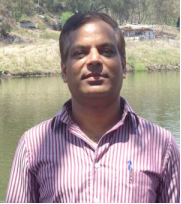
Prof. Rajkumar Buyya
CLOUDS Lab, School of Computing and Information Systems, The University of Melbourne, Australia
Talk Title: New Frontiers in Cloud and Edge/Fog Computing for Big Data & Internet-of-Things Applications
Abstract: Computing is being transformed to a model consisting of services that are delivered in a manner similar to utilities such as water, electricity, gas, and telephony. Cloud computing paradigm has turned this vision of "computing utilities" into a reality. It offers infrastructure, platform, and software (application) as services, which are made available as subscription-based services in a pay-as-you-go model to consumers. Cloud application platforms need to offer (1) APIs and tools for rapid creation of elastic applications and (2) a runtime system for deployment of applications on geographically distributed computing infrastructure in a seamless manner.
The Internet of Things (IoT) paradigm enables seamless integration of cyber-and-physical worlds and opening up opportunities for creating new class of applications for domains such as smart cities. The emerging Fog computing paradigm is extends Cloud computing model to edge resources for latency sensitive IoT applications.
This keynote presentation will cover (a) 21st century vision of computing and identifies various IT paradigms promising to deliver the vision of computing utilities; (b) innovative architecture for creating elastic Clouds integrating edge resources and managed Clouds, (c) Aneka, a Cloud Application Platform, for rapid development of Cloud/Big Data applications and their deployment on private/public Clouds with resource provisioning driven by SLAs, (d) a novel FogBus software framework with Blockchain-based data-integrity management for facilitating end-to-end IoT-Fog(Edge)-Cloud integration for execution of sensitive IoT applications, (e) experimental results on deploying Cloud and Big Data/Internet-of-Things (IoT) applications in engineering, and health care, satellite image processing, and smart cities on elastic Clouds; and (f) directions for delivering our 21st century vision along with pathways for future research in Cloud and Edge/Fog computing.
Bio: Dr. Rajkumar Buyya is a Redmond Barry Distinguished Professor and Director of the Cloud Computing and Distributed Systems (CLOUDS) Laboratory at the University of Melbourne, Australia. He is also serving as the founding CEO of Manjrasoft, a spin-off company of the University, commercializing its innovations in Cloud Computing. He has authored over 650 publications and seven text books including "Mastering Cloud Computing" published by McGraw Hill, China Machine Press, and Morgan Kaufmann for Indian, Chinese and international markets respectively. Dr. Buyya is one of the highly cited authors in computer science and software engineering worldwide (h-index=129, g-index=280, 88,500+ citations). "A Scientometric Analysis of Cloud Computing Literature" by German scientists ranked Dr. Buyya as the World's Top-Cited (#1) Author and the World's Most-Productive (#1) Author in Cloud Computing. He is recognised as Web of Science “Highly Cited Researcher” for four consecutive years since 2016. Dr. Buyya is recognized as Scopus Researcher of the Year 2017 with Excellence in Innovative Research Award by Elsevier and recently received "Lifetime Achievement Awards" from two Indian universities for his outstanding contributions to Cloud computing and distributed systems.
Software technologies for Grid, Cloud, and Fog computing developed under Dr.Buyya's leadership have gained rapid acceptance and are in use at several academic institutions and commercial enterprises in 40 countries around the world. Dr. Buyya has led the establishment and development of key community activities, including serving as foundation Chair of the IEEE Technical Committee on Scalable Computing and five IEEE/ACM conferences. These contributions and international research leadership of Dr. Buyya are recognized through the award of "2009 IEEE Medal for Excellence in Scalable Computing" from the IEEE Computer Society TCSC. Manjrasoft's Aneka Cloud technology developed under his leadership has received "Frost & Sullivan New Product Innovation Award". He served as founding Editor-in-Chief of the IEEE Transactions on Cloud Computing. He is currently serving as Editor-in-Chief of Software: Practice and Experience, a long standing journal in the field established ~50 years ago. For further information on Dr.Buyya, please visit his cyberhome: www.buyya.com
Keynote Speaker II
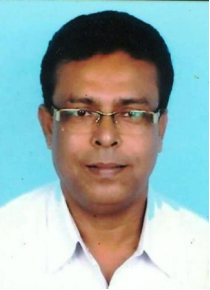
Prof. Dr. Priti Kumar Roy
Centre for Mathematical Biology and Ecology, Department of Mathematics, Jadavpur University, India
Talk Title: Biodiesel: Mathematical Study for Pest Management in JC plant with Integrated Pesticides and its Production from JC Oil by Supercritical and Chemical Catalytic Method
Abstract: Biodiesel is one of promising renewable energy source and used as an alternative of conventional hydrocarbon fuels. Jatropha curcas plant oil (JCPO) is the most cost effective sources of biodiesel. The plant can be cultivated in wastelands and grows on almost any type of territory, even on sandy and saline soils. Mathematical model for Jatropha curcas plantation with a view to control its natural pests using application of integrated pesticides has an enormous importance. Bio-pesticides are costly; require a long term process and expensive to impose. But if chemical pesticides are introduced in the farming system along with bio-pesticide, the process will be faster as well as cost effective. Initially we have tried to show how mathematically we can predict maximum production of Jatropha curcas plant oil (JCPO) in different avenue using pesticide. Jatropha curcas oil which has been widely used for the production of biodiesel (BD) using various processes. Here we have mathematically showed about BD production via chemical catalytic transesterification reaction method, supercritical methanol (SCM) method, and SCM with stirrer method. On this viewpoint, mathematical models of transesterification reaction process are formulated. The model systems are solved mathematically as well as numerically and the optimum value of important parameters, including reaction temperature, stirrer speed, and the molar ratio of methanol to oil, is found out. A comparative mathematical study has been made among these three processes with respect to product efficiency, reaction conditions, and mass mixing intensity through supercritical process for cost-effective production transfer. Furthermore, control theoretic approach is applied in of BD from Jatropha curcas oil. The optimum conditions were found to be 323K temperature, 6:1 mol/mol for methanol to oil ratio, and 561 rpm for stirrer speed. It may be concluded that SCM with stirrer is a promising alternative to produce BD from Jatropha curcas oil due to its economic benefit, high productivity, and good quality of the product. The validity of the models is established by experimental results available in literature.
Bio.: Professor (Dr.) Priti Kumar Roy is Professor of Jadavpur University and visiting Professor of Beijing Technology and Business University, China. Earlier, he served several Government Colleges in different parts of West Bengal, India. He is proficient in modeling serious issues on Ecological & Industrial mathematics like Enzyme Kinetics, Methanol Toxicity, Biodiesel production etc. Under his mathematical expertise he has proven the application of mathematical experimentations to provide novel solutions to mitigate the disease. With over 120 peer-reviewed research papers, more than 50 invited talks (abroad), 30 invited talks (India) in different International and National Institute, he is a dedicated researcher in mathematical modelling and an expertise in numerical and analytical solutions to complex problems on real-life system dynamics. Professor Roy has published two books on “Mathematical Models for Therapeutic Approaches to Control HIV Disease Transmission” (Springer in 2015) and “Mathematical Models for Therapeutic Approaches to Control Psoriasis” (Springer in 2019). He also edited three books on “Insight and Control of Infectious Disease in Global Scenario (Intech Publishers)” ,“A collection of Writings Objective Articulation from Socio-Academic Spectrum” and “Mathematical Analysis and Application in Modeling” (by Springer 2019, In Press). In his publications he has significantly contributed to boost the production of the biodiesel from Jatropha and also laid down sound ecological premises to enhance the production through ecological controls applied to agro-management. He is also researching on epidemiological issues on the chronic infectious disease like HIV, Cutaneous Leishmaniasis, and Leprosy. Professor Roy also works on the neglected tropical disease like psoriasis and has formulated robust mathematical models on the dynamics of such disease. Eleven Doctoral students awarded their Ph.D and eight more research students are pursuing their doctoral degree under his able guidance. He is an eminent member in different National and International Societies like Biomathematical Society of India (BMSI), International Association of Engineers (IAENG), European Society of Clinical Microbiology and Infectious Diseases (ESCMID) and European Society for Mathematical and Theoretical Biology (ESMTB). He has completed ten research projects as Principal Investigator, sponsored by various Government of India funding agencies. Professor Roy has received the Best Paper Award at the World Congress on Engineering 2010 in London. He was awarded with the “Siksha Ratan” Award in 2012. He is also Royal Society of Edinburgh and Poland Academy of Science Fellowship Awardee.
Keynote Speaker III

Prof. Bogdan Gabrys
Director of Advanced Analytics Institute, University of Technology Sydney, Australia
Talk Title: Automated composition, optimisation and adaptation of complex predictive systems
Abstract: There has been a lot of work done on the subject of intelligent data analysis, data mining and predictive modelling over the last 50 years with notable improvements which have been possible with both the advancements of the computing equipment as well as with the improvement of the algorithms. However, even in the case of the static, non-changing over time data there are still many hard challenges to be solved which are related to the massive amounts, high dimensionality, sparseness or inhomogeneous nature of the data to name just a few. What is also very challenging in today’s applications is the non-stationarity of the data which often change very quickly posing a set of new problems related to the need for robust adaptation and learning over time. In scenarios like these, many of the existing, often very powerful, methods are completely inadequate as they are simply not adaptive and require a lot of maintenance attention from highly skilled experts, in turn reducing their areas of applicability.
In order to address these challenging issues and following various inspirations coming from biology coupled with current engineering practices, we proposed a major departure from the standard ways of building adaptive, intelligent predictive systems by utilising the biological metaphors of redundant but complementary pathways, interconnected cyclic processes, models that can be created as well as destroyed in easy way, batteries of sensors in form of pools of complementary approaches, hierarchical organisation of constantly optimised and adaptable components. In order to achieve such high level of adaptability we have proposed novel flexible architectures which encapsulate many of the principles and strategies observed in adaptable biological systems. The proposed approaches have been extensively and very successfully tested by winning a number of predictive modelling competitions and applying to a number of challenging real world problems including pollution/toxicity prediction studies, building adaptable soft sensors in process industry in collaboration with Evonik Industries or forecasting demand for airline tickets covering the results of one of our collaborative research projects with Lufthansa Systems.
Following the drive towards automation of predictive systems building, deployment and maintenance, recent work at Prof. Gabrys' group resulted in an approach and an open-source software which allows to automatically compose, optimise and adapt mutlicomponent predictive systems (MCPS) potentially consisting of multiple data preprocessing, data transformation, feature and predictive model selection and postprocessing steps. Our findings, supported by extensive experimental analysis, can have a major impact on development of high quality predictive models as well as their maintenance and scalability aspects needed in modern applications and deployment scenarios. All of these will be covered and discussed during this talk.
Bio.: Bogdan Gabrys is a Data Scientist, a Professor of Data Science and a Director of Advanced Analytics Institute at the Faculty of Engineering and IT, University of Technology Sydney, Australia.
His research, consulting and advisory activities have concentrated on the areas of data science, complex adaptive systems, computational intelligence, machine learning, predictive analytics and their diverse applications. In particular, he has pursued the development of various statistical, machine learning, nature inspired and hybrid intelligent techniques especially targeting data and information fusion, learning and adaptive methods, multiple classifier and prediction systems, processing and modelling of uncertainty in pattern recognition, diagnostic analysis and decision support systems.
He is an accomplished author (with over 150 publications), frequently invited speaker at international events and fora and sought after data science expert.
More information can be found at his personal web page: http://bogdan-gabrys.com/
| Speakers in JCICE 2019 | |
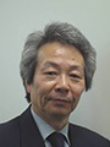 | Prof. Koichi Asatani Affilation: Chair Professor, Nankai University, Professor Emeritus, Kogakuin University |
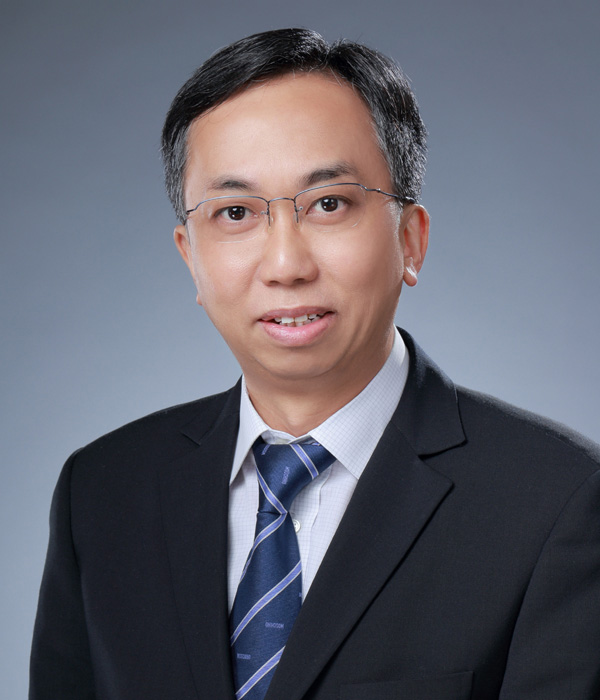 | Dr. Simon K.S. Cheung Affilation: Director of Information Technology, The Open University of Hong Kong, Hong Kong |
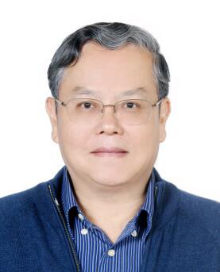 | Prof. Shen-Ming Chen Affilation: National Taipei University of Technology, Taiwan |
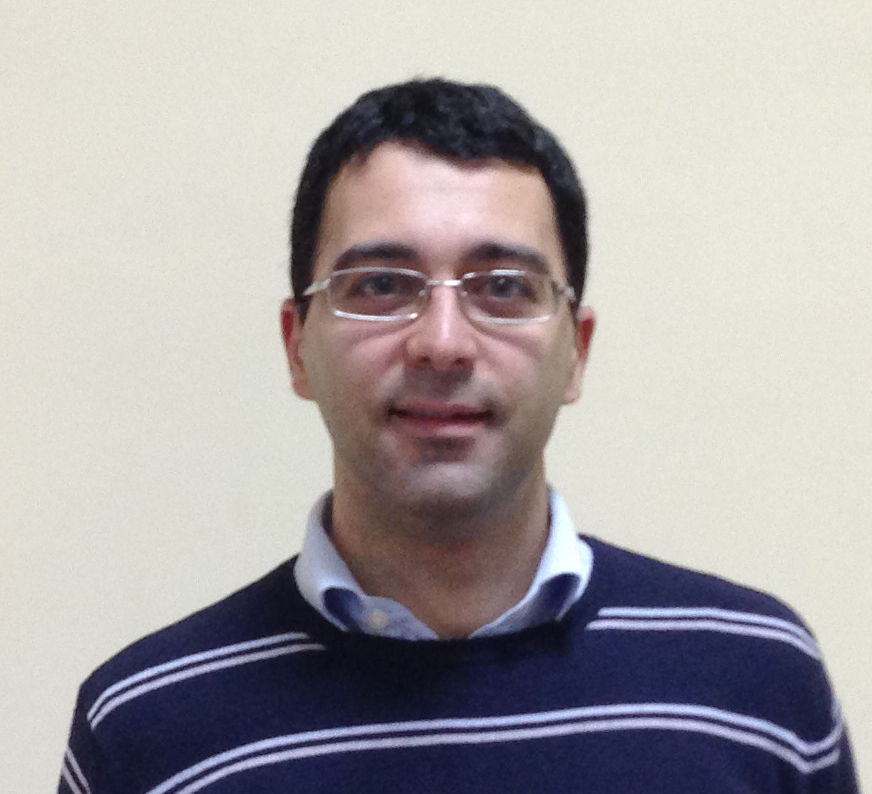 | Dr. Luca De Vito Affilation: University of Sannio, Italy |
 | Prof. Nao-Aki NODA Affilation: Mechanical Engineering Department, Kyushu Institute of Technology, Japan |